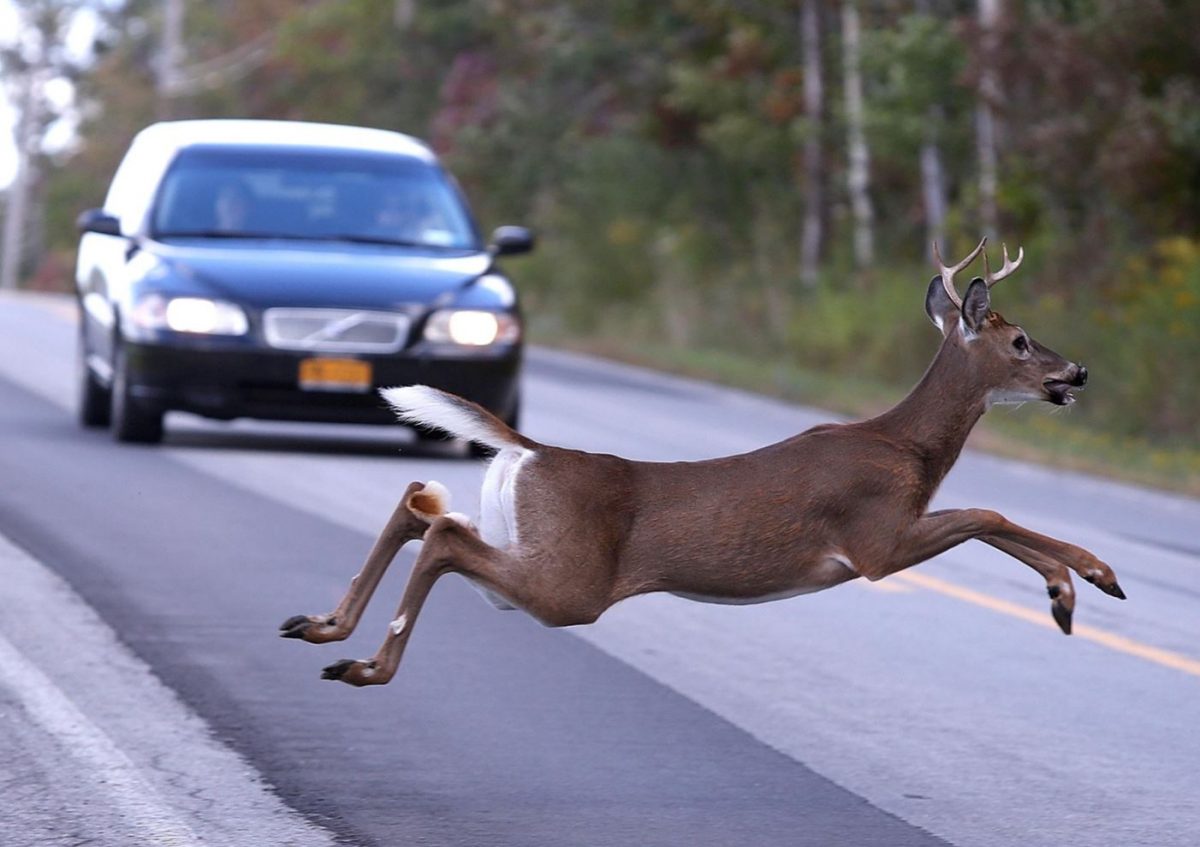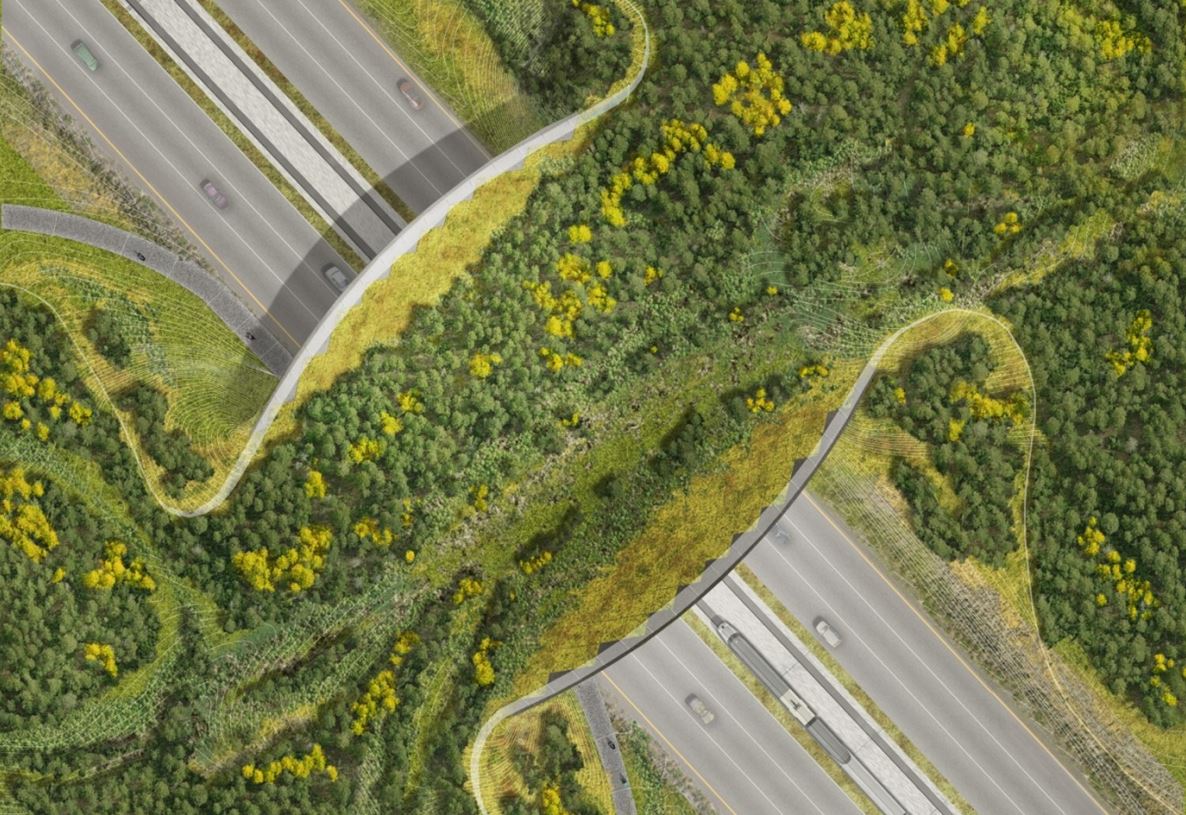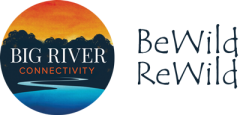“Migrations speak to us, not just as observers of nature, but as integral parts of it. The world moves, and deep inside, we move with it.” –Mike Bergin

- What do you/we mean by wild?
Wild can mean a remote and relatively untouched forest bisected by a highway, or wild can be found in the plants and animals that surround us in the neighborhoods and cities where we live. Wildlife crossings present an opportunity to work with nature rather than against it. Wildlife crossings save both animal and human life and they are an expression of good stewardship. - What changes are needed for us to live within the boundaries of sustainability?
We must become more aware and respectful of the wild in and between our cities and look for innovative ways to plan our projects and activities in harmony with nature. Wildlife crossings add cost to new projects and can be even more expensive to add to old projects. But we must consider the cost of not having the crossings. Annually in Iowa there are 7,000 collisions with deer resulting in 400 injuries, and 3 deaths. The national average cost per insurance claim is $4,000. Wildlife crossings help prevent animal/automobile collisions saving both wildlife and human life and related costs. - How can we create a wilder, more beautiful, more biologically diverse, and a more enduring Mississippi River Watershed?
Most wildlife crossings are infrastructure projects that must be undertaken by local, state, or the Federal government. As individuals, we must make it known to our representatives that we support legislation and other efforts to create wildlife crossings. Wildlife crossings build bridges between people and the other inhabitants of the natural world.
Synopsis
“Over & Under: Wildlife Crossings”, a broadcast-quality 7-10 minute short film, will depict the need for wildlife crossings in Iowa and the Mississippi River Watershed, and showcase a small number of successful crossings projects in Iowa and the immediate region. The film will conclude with a specific call-to-action(s) for viewers who are motivated to help.
About Us
Fourth Wall Films is a four-time Emmy-nominated and award-winning independent film production company based in Moline, Illinois on the Mississippi River. Since the release of our first feature-length historical documentary film in 2004, we have completed over a dozen films that tell important but forgotten Midwestern history stories, most of which have a focus on Iowa—including the Lost Nation: The Ioway documentary series. Each year we also do some work for outside clients (Good Earth: Awakening the Silent City 19-min. – State of South Dakota), and work in partnership with local or regional non-profit organizations (Any Kid Anywhere: Sex Trafficking Survivor Stories 17-min. – Braking Traffik). We look for projects that reflect our interests and values. We are excited about the opportunity to work with the BeWildReWild Fund at Iowa Natural Heritage Foundation on this important, timely and compelling film project.
What the Film Will Do
This visually-creative short film will make viewers aware of “wildlife corridors” and the highways that often cut through these vital animal pathways. The film will then explore “wildlife crossings” over or under highways as a solution that benefits animals on-the-move and diminishes the property damage and personal injury or death that results from vehicles that collide or crush animals. On-camera interviews will be filmed with experts in the region. Successful projects briefly profiled in the film may include an under-the-road Blanding’s turtle crossing in Cedar Rapids, a turtle crossing near Stephen’s Point, Wisconsin, and culverts and bridges in Iowa and the region that are functioning as wildlife crossings (even if they are not identified as such). Projects in other regions–that may one day be utilized in Iowa–will be depicted visually via stock footage or photos (ie., large animal crossings under and over highways in Oregon, Colorado, Montana, and Canada). Once viewers are sensitized to the problem and possible solutions, the film will provide specific ways that viewers can support and engage with these solutions. The strength of our films is in the story-telling, and the way the story is told emerges from the footage and interview comments gathered for the film.
Where Viewers Will See the Film
While the finished film will be posted and viewed via the BeWildReWild website, it will also be accessible in many other places including Facebook or Twitter posts by other organizations, Fourth Wall Films social media accounts, and as an informative interstitial on WQPT-PBS and other Midwestern PBS stations—reaching thousands of viewers each time it airs. Interstitials help broadcasters fill the entire half or one hour time slot with substantive and impactful short works when the main program run time is short. A second shorter version of the “Crossings” film can be created if that means it would be used more often. The film may also be submitted to film festivals. The Vimeo.com version of the film will be “portable,” and can be used by anyone in presentations or public programs.
Grant Request
Fourth Wall Films will provide in-kind contributions in the form of time by Director/Writer/Editor Kelly Rundle and Producer/Writer Tammy Rundle, meals during travel, and some lodging during out-of-town production trips. In-kind contributions from Fourth Wall will also include promotion and distribution of the completed film in the ways noted above.
Grant funds will be used for production (wildlife footage, landscape and general footage, and on-camera interviews). We only use drone footage when it is motivated by the content of the project. This project lends itself to aerial drone footage as an effective way to show how highways cut through natural areas and present an obstacle to wildlife movement. Some “trail cam” footage may be used to capture hard-to-get animal movement footage. Grant funds will cover a portion of the cost of travel, and the editing and finishing phase of the projects. Grant funds will also cover a portion of the cost of music and footage licensing.
Total grant request: $10,000
Project completion: October 2020
Recognition
The BeWildReWild Fund at Iowa Natural Heritage Foundation will be acknowledged as the primary funder in the closing credits of the film with a logo/text, and in any printed materials, press releases, and/or marketing materials.
“Study nature, love nature, stay close to nature. It will never fail you.
–Frank Lloyd Wright

